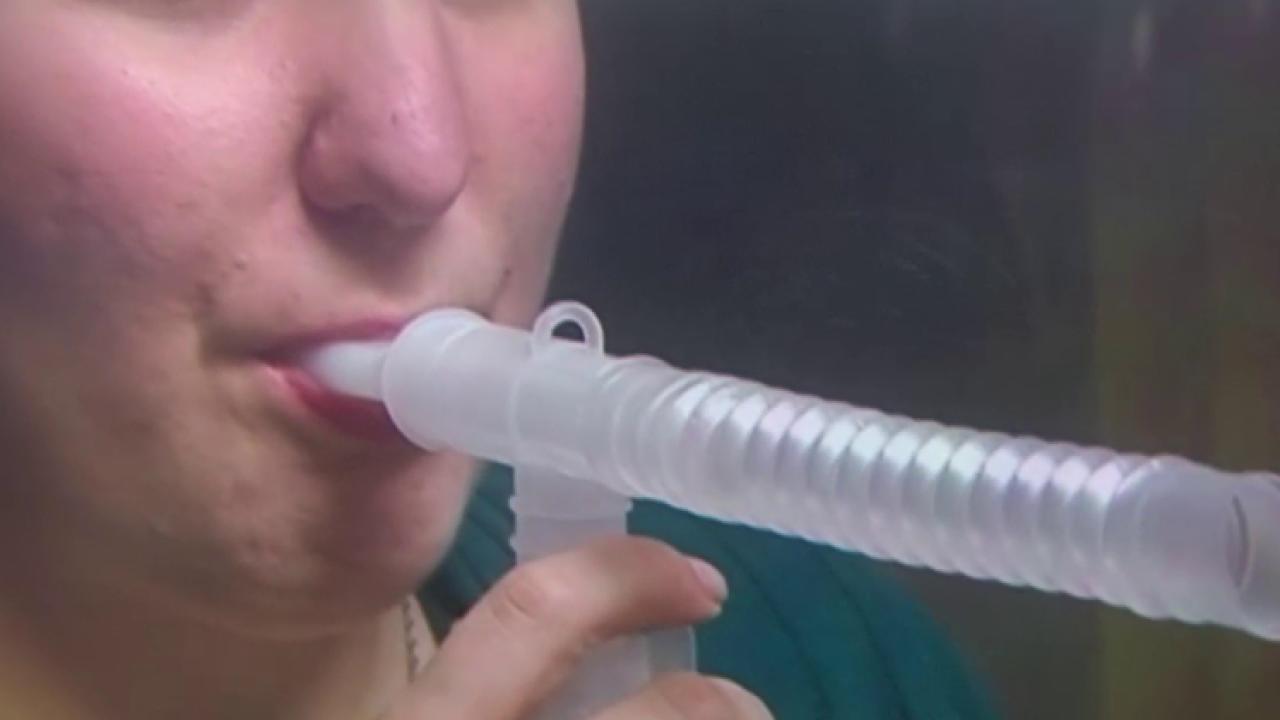Increasing Steroid Dose Doesn’t Control Asthma Better
Kids Who Got High Doses Grew More Slowly
Giant doses of steroids don’t help kids control asthma flareups and might stunt their growth, researchers reported Saturday.
And they barely help adults, either, according to a pair of reports published in the New England Journal of Medicine and presented at an allergy meeting.
It’s a common practice but one that providers might want to reconsider, said Dr. Elizabeth Matsui, a professor of pediatrics at Johns Hopkins University.
“The practice of increasing the dose of inhaled glucocorticoids in children is generally not endorsed in guidelines. But if you talk to asthma specialist and primary care providers it is fairly common practice,” Matsui said.
Asthma is a serious and chronic condition. Patients — and their parents if they are children — must juggle a menu of treatments that include daily inhalers, rescue inhalers for acute attacks and, sometimes, pills.
All sorts of things, from allergies to exercise, can worsen asthma. Keeping it under control requires daily vigilance.
Dr. Daniel Jackson of the University of Wisconsin school of medicine and colleagues wanted to check the benefits of trying to control asthma in what’s called the “yellow zone” — when symptoms have worsened, but it’s not quite an asthma “attack”. For instance, this might mean needing their relief inhaler more often than usual or having trouble sleeping because of asthma.
They studied 192 kids aged 5 to 11 who had been treated with controller medications called glucocorticoids at least once in the past year for an asthma flareup. They used Flovent, a common daily inhaler medicine.
They were all doing low-dose maintenance treatment with glucocorticoids: two small doses of Flovent — 44 micrograms per snort, twice a day.
As soon as they entered the yellow zone, they either stayed on their regular dose, or took five times that dose.
The quintuple doses of Flovent did not reduce symptoms, Jackson’s team reported. And there was a troubling side-effect.
“The growth rate among children who had been randomly assigned to the high-dose group was 0.23 cm (0.09 inch) per year less than the rate among children who had been randomly assigned to the low-dose group,” they wrote.
That is a small difference but enough to cause concern. It’s already known that glucocorticoids can weaken bone and increase susceptibility to infections.
“This is a single study in a single population — children with mild asthma who had at least one asthma exacerbation — and it doesn’t mean we should declare that patients should not be managed with that approach any more,” Matsui said. “It’s not a terrible practice across the board.”
But she said it is worth studying further.
The use of controller medications is well estiablished. “Most people who have asthma need to take long-term control medicines daily to help prevent symptoms,” the National Heart, Lung and Blood Institute says.
“The most effective long-term medicines reduce airway inflammation, which helps prevent symptoms from starting. These medicines don’t give you quick relief from symptoms.”
These corticosteroid drugs include Flovent, known generically as fluticasone; Pulmicort or budesonide; Asmanex or mometasone, and others.
A second British team tested a similar approach in 1,800 teens and adults. They found a slight benefit to a quadruple dose of glucocorticoids, but also at a cost.
“The rate of adverse effects, which were related primarily to local effects of inhaled glucocorticoids, was higher in the quadrupling group than in the non-quadrupling group,” they wrote. These side-effects include thrush, a yeast infection of the mouth.
Researchers already know that careful self-management plans help control asthma. And it’s known that just doubling up on the inhaler does not help.
“Evidently, high doses of inhaled glucocorticoids do not prevent exacerbations, or may do so only in a small subgroup of patients,” Dr. Philip Bardin on Australia’s Monash University, who was not involved in either study, wrote in an editorial.
The American Academy of Allergy Asthma and Immunology says asthma is considered well controlled if:
- You have symptoms no more than two days a week, and these symptoms don’t wake you from sleep more than one or two nights a month.
- You can do all your normal activities.
- You take quick-relief medicines no more than two days a week.
- You have no more than one asthma attack a year that requires you to take corticosteroids by mouth.
- Your peak flow (a measure of lung function) doesn’t drop below 80 percent of your personal best number.
Source: NBCnews



Comments are closed.